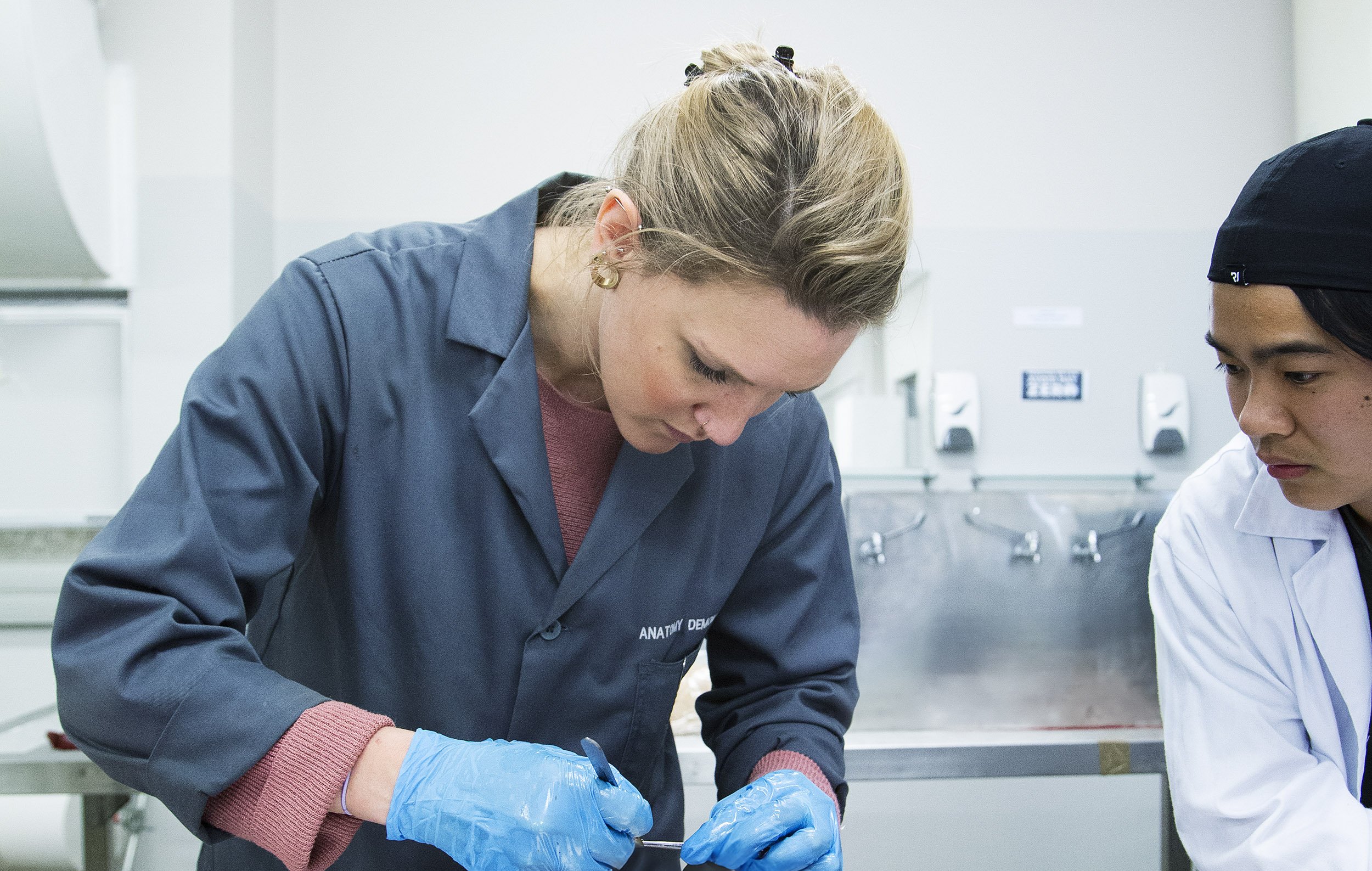
Academic Integrity
“Following established protocol is the cornerstone of academic excellence, ensuring that the end product of our process is credible, trustworthy, and deserving of respect.”
THE UNIVERSITY OF CAPE TOWN
Our partners at the University of Cape Town
Dr. Slater (prior to his retirement in 2020) served as the principal investigator in spearheading the approval of an ethics committee who endorsed the use of anatomised MRI data for the project. His role included selecting and arranging preparation of anatomical specimens for our team to work from. As he guided us through the process of working with the specimens in a respectful and ethical manner we learnt a great deal about the value of an ethical approach. Strict controls were put in place regarding who has access to the resources, and how the gathered data was acquired and managed. Initially surface scans of bones were performed for the highest resolution results. When the shift was made to MRI scans for various soft tissue areas, the decision was made to make use of existing patient data where tests had yielded negative results for pathologies and had been anonymized for the project.
When we set out to create the world’s most sophisticated 3D anatomy model, we knew we’d have to go to great measures to achieve our dream. With our goal of creating an asset worthy of use by leading medical institutions, we sought to partner with experts in the field. Over many years, and countless meetings, we gradually built a relationship with Dr. Charles Slater MBChB, then Clinical Anatomy Lecturer in the Department of Human Biology at the University of Cape Town’s Medical School.

Hand’s on cadaver dissection gives our 3D artists 1st hand exposure to human anatomy, and ultimately elevates the depiction of anatomical features in our 3D models.
Anatomy Lecturer Claire Lewis & 3D Artist James Lin are pictured during a cadaver dissection training session.
HREC REF: 595/2015
Ethics Committee Approval
In 2015 our project, titled “Development of a 3-Dimensional Anatomical Database for High Resolution Imaging” received ethics committee approval. The granting of this approval by the University of Cape Town, Faculty of Health Sciences, Human Research Ethics Committee gives the resources we have created legitimacy in the global medical community. This is a rare qualification among available anatomical 3D models, and it’s value cannot be understated in the context of an asset that is suitable for use in an academic setting.


